Claw machines, once a niche type of amusement, require minimal investment and management to operate, and now they are driving a new wave of entrepreneurship in Hong Kong’s bustling malls amid economic uncertainty.
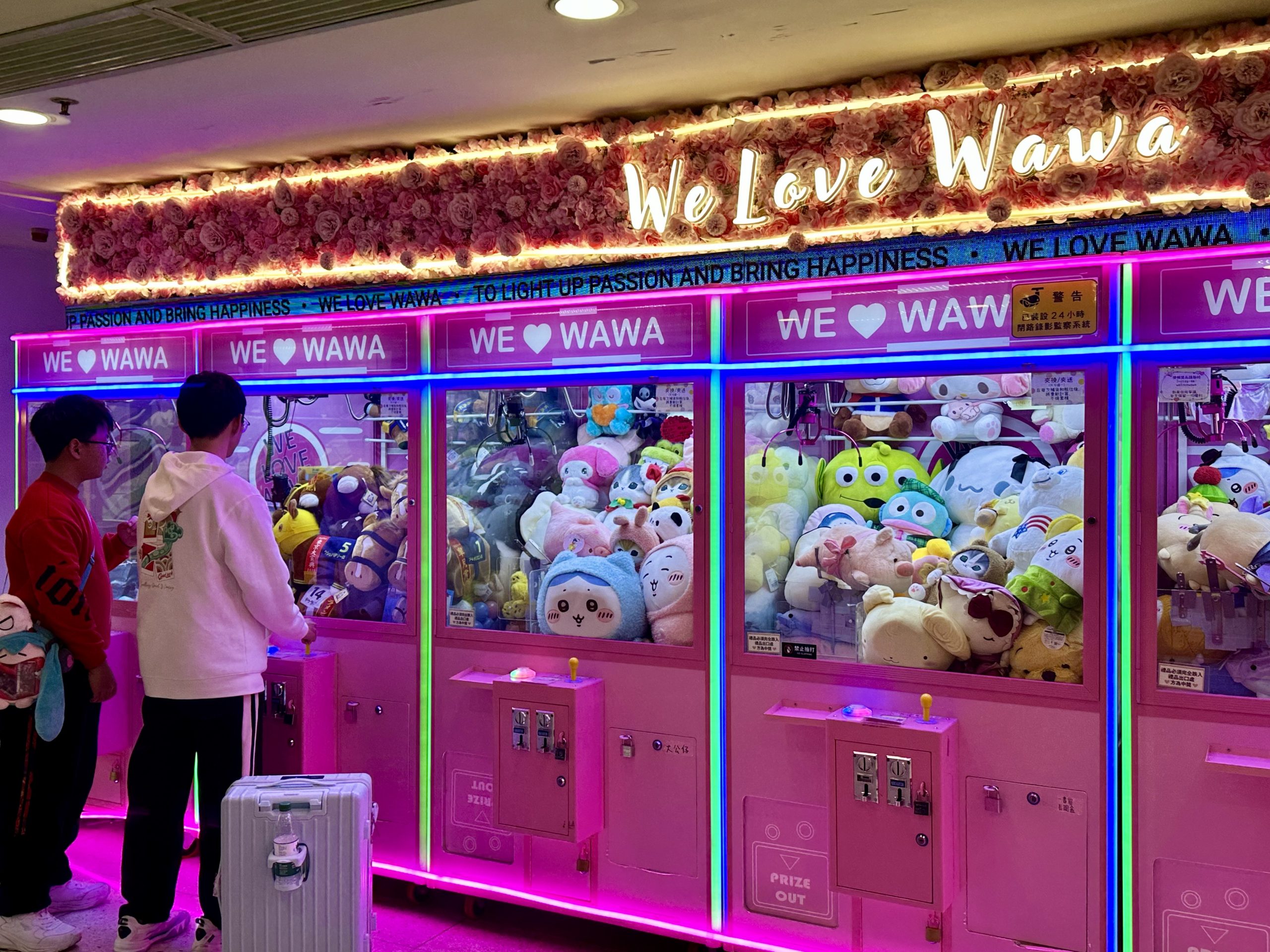
Claw machine arcades can stay open around the clock for which obsessed claw game lovers never have to stop. Recently, these machines have found their way into many shopping malls across Hong Kong, occupying previously vacant shop spaces and offering players a chance to win big prizes, such as a vacuum cleaner or a Nintendo Switch gaming console, for HK$5.
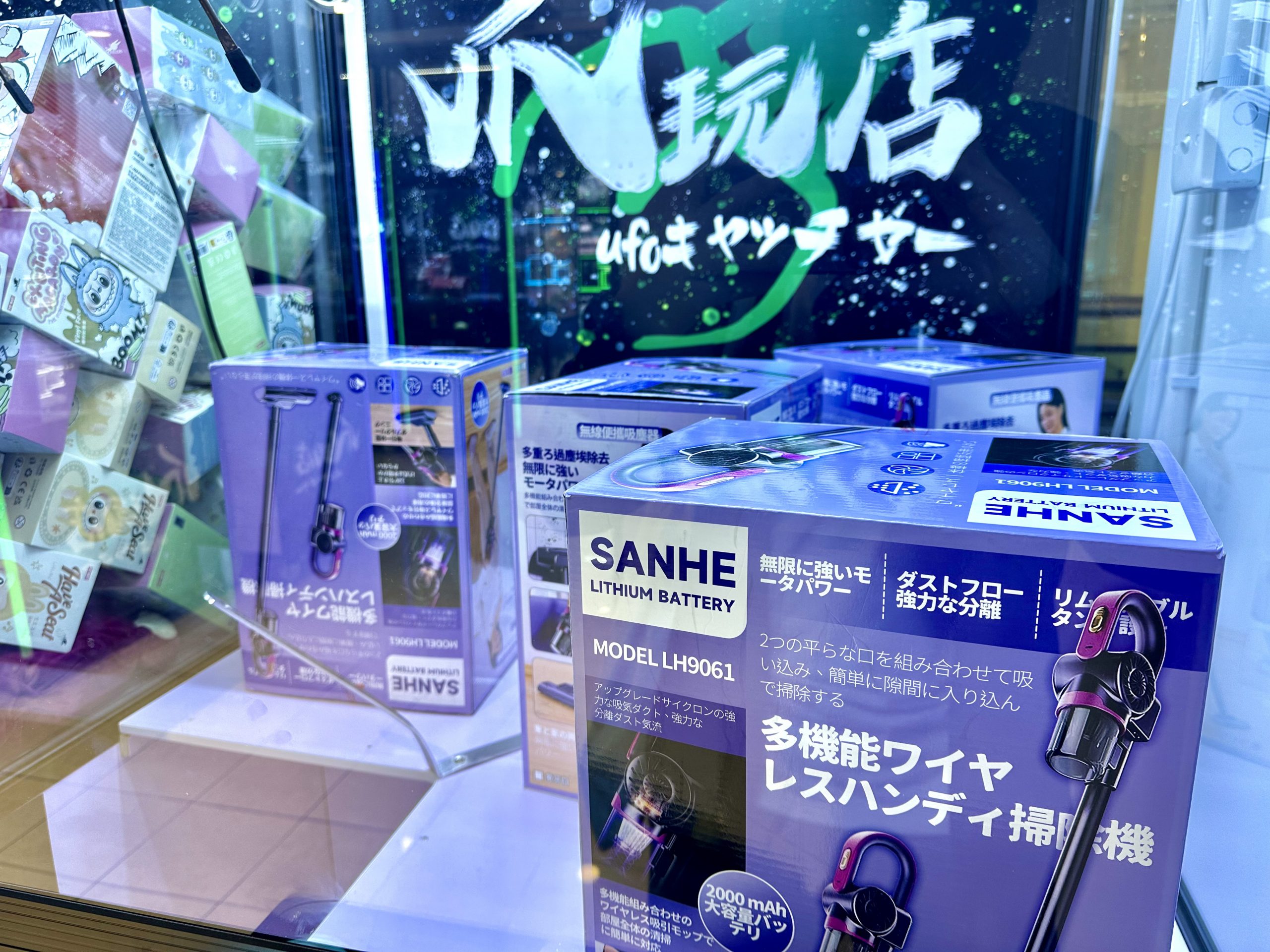
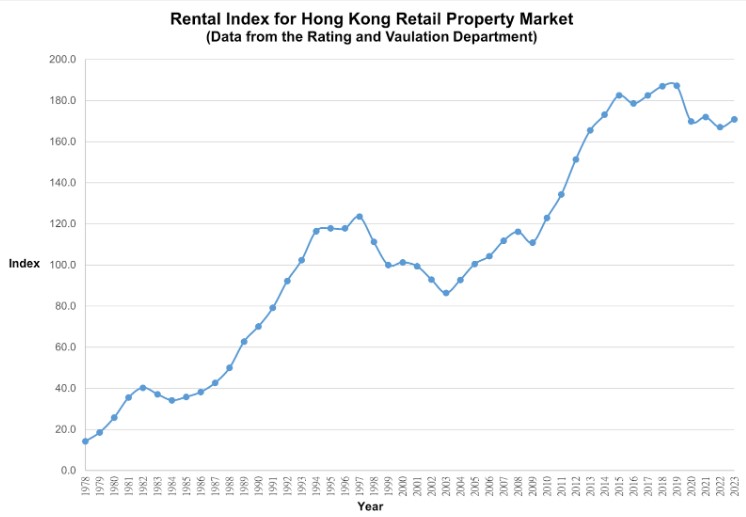
The rental index of the Hong Kong retail property market has dropped by over 20 points after peaking in 2019, and the average rent for retail has been decreasing since then, according to the Rating and Valuation Department.
Despite the fall, many commercial spaces remain vacant and claw machine arcades have become a short-term solution for both landlords and business starters.
Anyone who can afford the rent, the machines and the prizes can open a claw machine arcade, as they require minimal staffing and maintenance.
Alan Tang, 30, owner of a claw machine arcade in Yuen Long said all the machines in his shop were rented out in 2020, but only 60% of them are rented out now.
His monthly income peaked at nearly HK$100,000 in 2020, but since then Tang has seen a 60% drop in revenue.
As of the beginning of this year, machine rent ranges from HK$3,500 to HK$4,500, a 25% decrease from 2020. By comparison, fewer machines are being rented out.
“Claw machines require little management, more people are joining this business as it brings a decent amount of profit,” Tang said.
Tang added that the monthly rent for his store is about HK$50,000. Operating 24 hours every day costs him HK$5,000 for electricity and HK$10,000 for staffing each month.
Josh Wong, 30, Editor of claw.hk, a website managed by claw game enthusiasts to integrate arcade sites in Hong Kong, said they do not have the exact number of arcades in Hong Kong.
“A 10-fold increase since 2020 would not be an exaggeration,” he said.
As of February, there are three NGS Fun Station, four Taito Station, 14 Namco and 61 Jumpin Gym arcades in Hong Kong, according to the stores’ official websites.
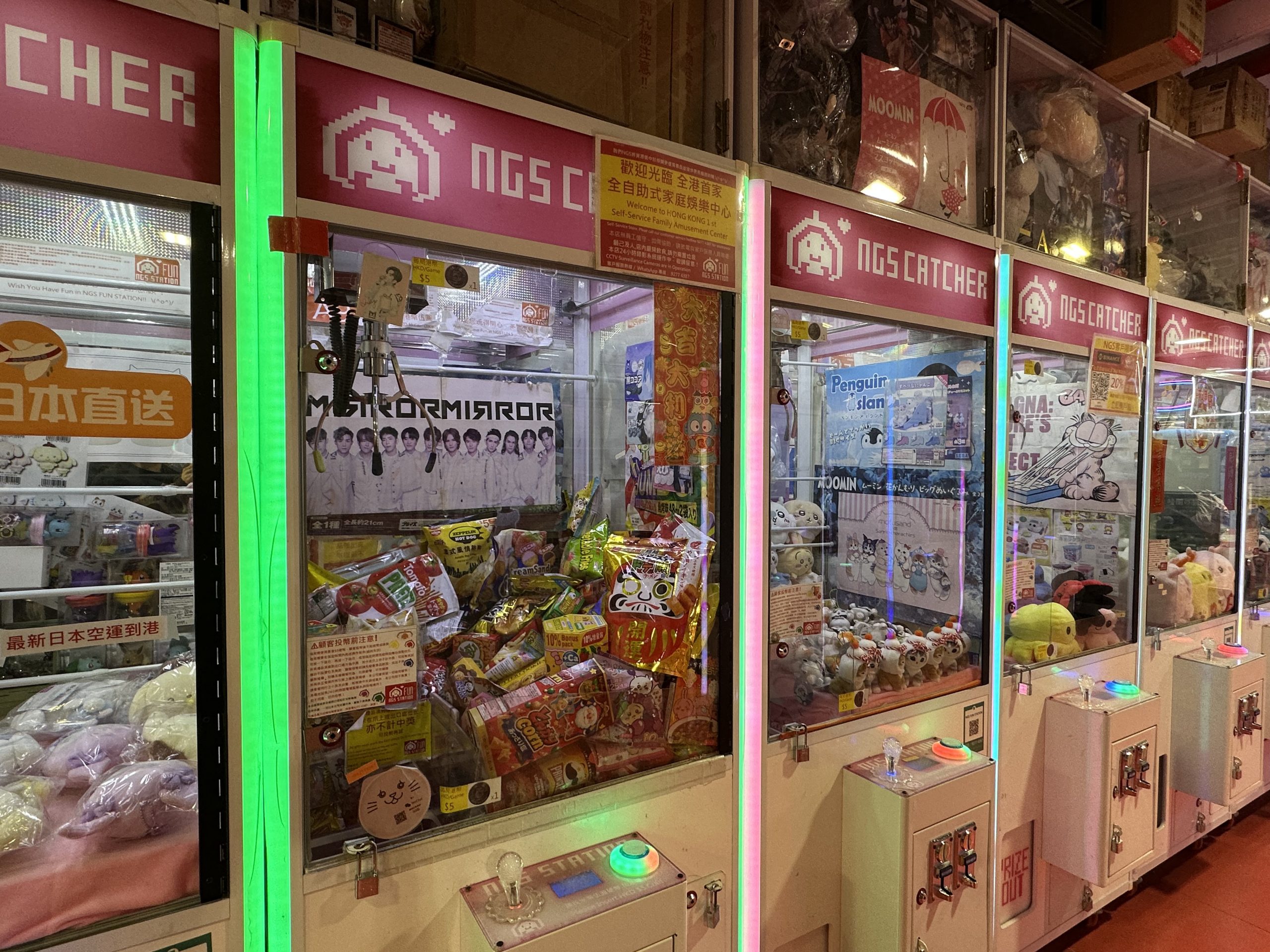
John Chan, 30, owns claw machine arcades at Red Mall in Causeway Bay and Dragon Centre in Sham Shui Po, as well as three machines at Hung Hom Square.
He has seen a decline in his business over the past five years, because some players believe they could win more valuable prizes from larger stores.
“Everybody [machine renters] try to make the games difficult and that has put off many players from claw games,” Chan said.
Of the nine floors of Dragon Centre, seven are filled with claw machines.
“There used to be more stores for daily necessities in Dragon Centre, but now even ParknShop, a supermarket originally located on the 4th floor, is shut,” Chan said.
Wong Hewitt Hin-yau, 20, has been renting seven machines with his friend across Hong Kong for two and a half years.
They thought it was a business opportunity, but his revenue has dropped by 10% across the seven machines since he started his business. Wong said it is because there have been more claw game scams with knock-off products.
Most of his customers are teenagers who are new to crane games.
Wong said some of them have no idea where to buy the toys featured in the claw machines so they turn to these arcades.
“Players are willing to spend money on claw games. Unfortunately some of them lack temperance, causing them to lose hundreds of dollars in an hour,” Wong said.
Park Ng Nok-ho, 19, has been renting 10 machines across Hong Kong.
The rent was around HK$2,000 to HK$3,000 per machine when he first started four years ago. Now, each machine costs him HK$5,000 a month.
“My business boomed right after the COVID-19 pandemic when Hongkongers had fewer leisure options,” Ng said.
“But profits have been consistent, around HK$30,000 to HK$40,000 per month. Profit from each machine can range from HK$2,000 to HK$10,000,” Ng added.
Ng also works at one of the three claw machine arcades at Park Lane Shopper’s Boulevard at Tsim Sha Tsui as a shopkeeper. The customers include students, couples and tourists.
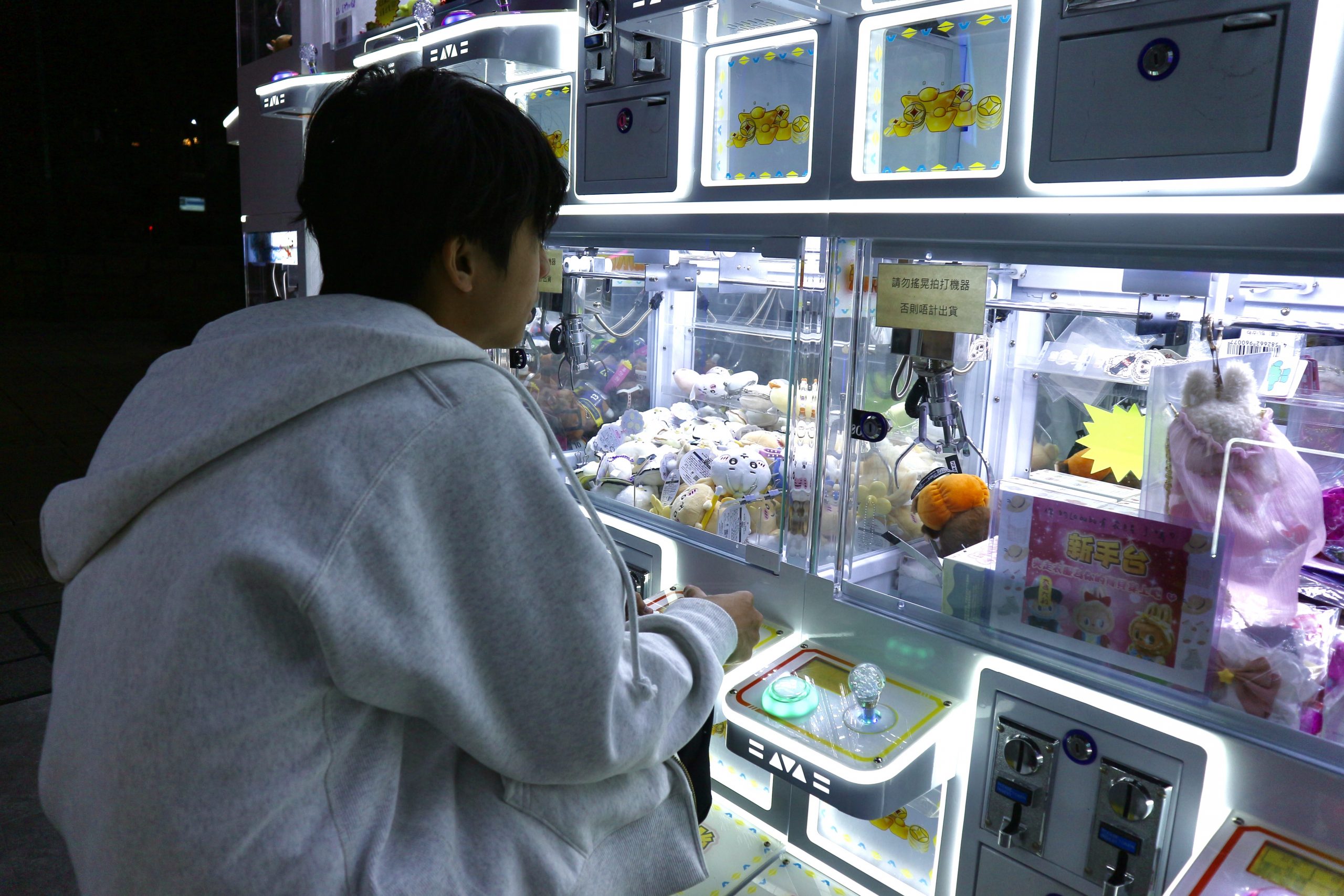
“I think the true reward is the sense of achievement,” Ng said.
Benddy Claw, 35, a Youtuber, has been a claw machine enthusiast for three years and has been documenting them on his channel.
He said it is rewarding to discover new claw machine arcades because of the novelty value.
Benddy added that the emergence of claw machines in the city has made the industry “more decent and lively.”
“The increasing popularity of claw machines may lead to addiction, with more people spending large amounts of money, resulting in an oversupply of machines and heightened competition within the industry,” he said.
“I think the game used to be simpler and more direct,” Benddy said. “The types of prizes, restrictions settings, or the rules, were less diverse.”
Benddy said that implementing rules for claw games can prevent unnecessary disputes due to varying game standards.
“Many new players may feel loss, thus misunderstand that claw games are full of scams,” Benddy said.
While some enjoy winning toys through claw games, others believe that they should be regulated.
Ethan Monk, 33, an Australian who has been living in Hong Kong for two and a half years, tried some of the machines at Dragon Centre.
“It can be fun but I don’t expect to win anything,” he said.

“I think the restriction that annoys me the most is that sometimes the claws drop the prize straight away, I think it is a bit deceptive,” he said.
Monk said the number of claw machines should be regulated because there are too many of them occupying too many places across Hong Kong.
Monk hopes there will be rules for restrictions on the machine’s exit for a better chance of winning.
“Sometimes the hole is clearly too small for the prize to fit. Anyone who puts money in is unlikely to win, so it's not really a game of luck, you’re most likely going to lose,” Monk said.
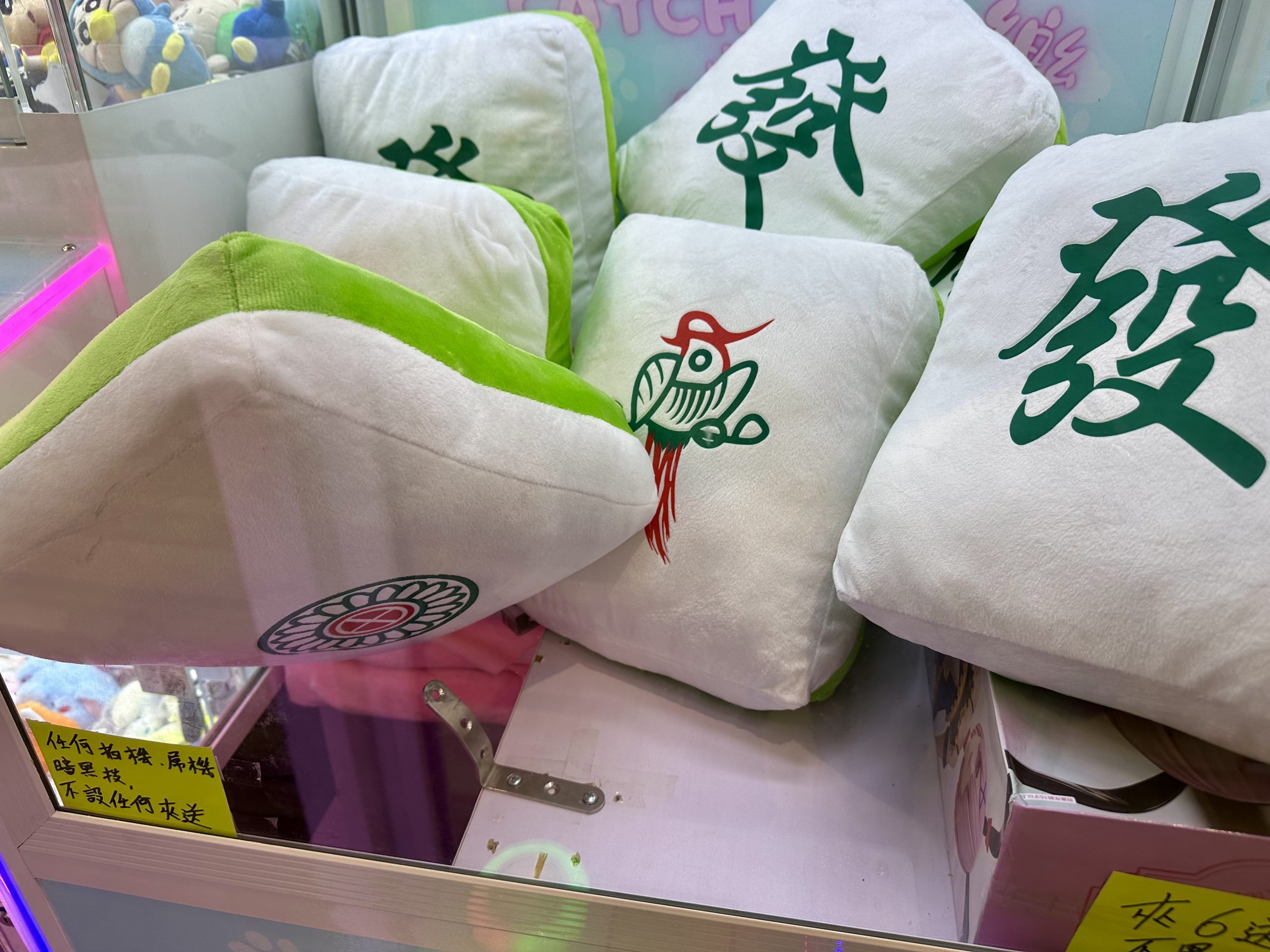
In a Facebook post, lawmaker Kong Yuk-foon said she played with two claw machines in the Dragon Centre in Sham Shui Po and found that the owners had tampered with the machines.
“The exit is blocked by iron clamps, rubber strips, rubber covers and iron rulers. I tried two machines and they both had loose claws,” she said.
Kong bought the doll for HK$200 and said it would be less expensive to buy her favourite doll than multiple trials of crane games.
On August 24, 2022, High Court Judge Anna Lai Yuen-kee declared that claw machines are not defined as entertainment according to Schedule 1 of the Places of Public Entertainment Ordinance, and licenses are not required to start a claw machine arcade.
The Consumer Council has previously expressed concern that claw games may involve gambling and called for a review of laws for appropriate regulation.
《The Young Reporter》
The Young Reporter (TYR) started as a newspaper in 1969. Today, it is published across multiple media platforms and updated constantly to bring the latest news and analyses to its readers.
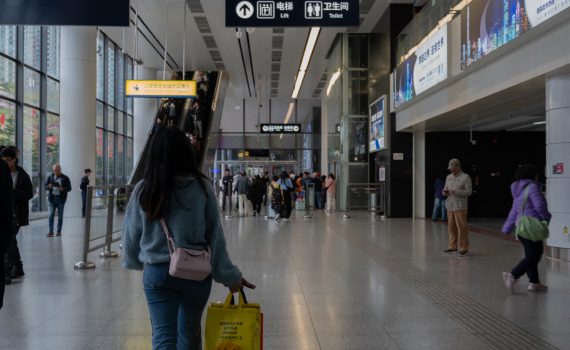
Private shoppers face uncertain future in shifting consumer market
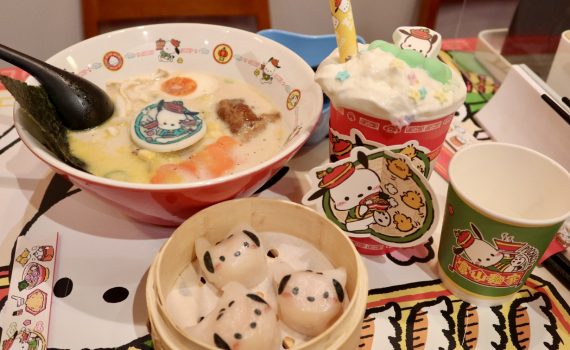
Themed restaurants offer new experiential consumption culture




Comments